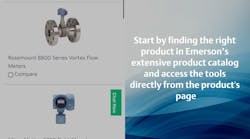Last month I described a legal case involving a woman who allegedly damaged her lungs after allegedly inhaling chlorine gas at a hotel swimming pool. The cause appeared to involve a flow switch that did not reliably detect no-flow conditions.
The opposing lawyers’ expert witnesses cited swimming pool design standards and guidelines that were beyond our expertise. At our behest, our lawyer hired a pre-eminent swimming pool expert who had designed over 600 swimming pools including recreational, athletic, therapeutic, hotel, military pools, and historic renovations.
Evaluation of the swimming pool and control system design process revealed that swimming pool designers generally had little or no instrumentation and control experience. This appeared to be a result of considering swimming pool control equipment to be a complete package that is used in “cookbook” fashion — the pool designers would simply connect the field sensors, valves and interlocks per the control equipment wiring drawing. This is not necessarily bad, but it can lead to problems when a component in the control system (such as the control equipment or sensor) is deficient in some manner.
A report of findings described the chemical reactions that caused the generation of free chlorine; it also showed how the existing flow switch installation was not suitable to detect no-flow conditions and protect against the occurrence of these chemical reactions. The probability of a chlorine release occurring was also calculated and showed that it was only a matter of time before a chlorine release occurred.
As in most legal cases, there was an out-of-court settlement that had no clear winners.
David W. Spitzer is a regular contributor to Flow Control magazine and a principal in Spitzer and Boyes, LLC offering engineering, seminars, strategic, marketing consulting, distribution consulting and expert witness services for manufacturing and automation companies. He has more than 35 years of experience and has written over 10 books and 250 articles about flow measurement, instrumentation and process control.
David can be reached at 845 623-1830 or www.spitzerandboyes.com. Click on the “Products” tab to find his “Consumer Guides” to various flow and level measurement technologies.
David W. Spitzer and Flow Control will be presenting a three-day Industrial Flow Measurement Seminar, June 12-14, in New Orleans. To learn more, visit FlowControlNetwork.com/FlowSeminar.




